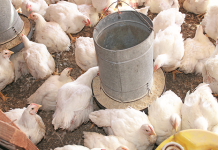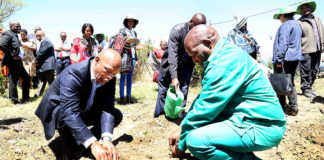Langa Zita, director general of the department of agriculture, highlighted the importance of co-operatives at the recent International Year of Co-operatives Indaba. And I could not agree with him more. Although the concept of co-operatives and their importance in the development of small-scale farmers and food security has been emphasised again and again, the very people who should be making this concept work are the ones contributing to its failure.
No, I’m not talking about the government, but small-scale farmers themselves. After all, the government can only go so far. It’s not for government to run businesses or co-ops; its job is to educate and train farmers on how to run these successfully.
Disloyalty
One study into co-ops and why they fail in the former homelands suggests that the main reasons are lack of management experience and knowledge, lack of capital resources and ‘disloyalty of members’. I would single out the latter as the main problem – particularly greed and selfishness. Sometimes, after receiving training, some people realise the potential opportunities and profits, and decide to take it all for themselves.
Here’s a typical example: a co-op forms with the aim of accessing a market, and government extension officers even identify that market for it. Then one of the co-op members goes behind everyone else’s backs, forms his or her own co-op with relatives and steals that market, signing a contract to supply it. After a while, however, the farmer is unable to keep up with the demand. He or she then loses the contract and is back to square one. Not only is this person’s reputation ruined but all the other farmers in the co-op suffer losses as a result.
Working
According to Zita, there are approximately 830 co-ops registered on the department’s database, of which only about 200 seem to be functional. However, even these are simply groups of people farming together, rather than co-operatives in the real sense of the word. And yet, globally, this model has been proved to be tremendously effective. Statistics show that co-ops around the world employ 20% more people than corporations.
In Italy, the big co-op Legacoop has more than eight million members and a turnover of over R570 billion. It’s involved in numerous activities, including retail and wholesale trading, construction, manufacturing, agro-processing and tourism. Co-ops in Brazil contribute about 40% to the country’s agricultural gross domestic product.
One co-op in India manages 90% of the dairy industry. And in Kenya, where 60% of its population draws its income from co-ops, there is even a government ministry dedicated to co-ops. The irony is that here in South Africa, co-ops have already shown themselves to be an effective developmental instrument. One simply has to look at the likes of Senwes, OVK and others.













